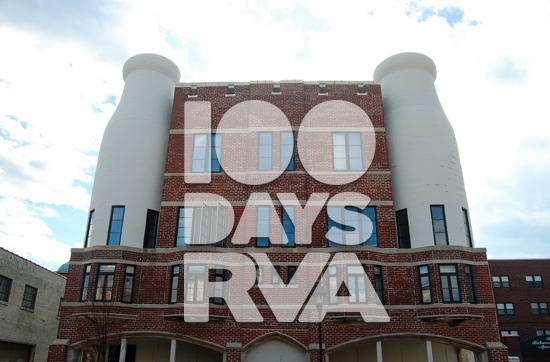Day #073: The good, the bad, and the future of gentrification; Part 1
Taxes seem boring, but taxes change lives.

Inspired by Michael Bierut’s 100 Day Project, 100 Days to a Better RVA strives to introduce and investigate unique ideas to improving the city of Richmond. View the entire project here and the intro here.
- Idea: Average the taxable real estate assessment of longterm residents in Richmond Redevelopment and Conservation Zones to limit a downside of gentrification.
- Difficulty: 3 — It’s tough to find research on this topic. It’s worth studying on an academic level, but the program could also run as a trial in one neighborhood.
America is on the front half of a serious movement toward urbanism. Neighborhoods are transforming at a breakneck pace that is improving lives, but others are being left behind. Like free trade and automation, the benefits of gentrification outweigh the losses, but the losses are disproportionately placed on a few. Today’s piece will focus on averaging taxable real estate assessments to protect longtime homeowners in transforming neighborhoods. Tomorrow’s article will focus on policies for helping aspiring homeowners and renters in transforming neighborhoods.
In 2007, Scott Bass and Chris Dovi did a great job chronicling some of the issues of gentrification in Richmond in an article titled “There Goes the ‘Hood.” The article starts by telling the tale of Louise Broady. A homeowner in Church Hill since 1968,1
Broady’s experience was not unique. Despite a shrinking real estate tax rate,2
Gentrification has become a loaded term, but it isn’t all bad. Rising property values means more coin in the coffers of Richmond for providing essential city services. The assessments are also representative of improving neighborhoods.
How do we reconcile the important progress of neighborhoods while protecting residents? Shouldn’t we just leave this to the market?
Markets excel because of their allocative efficiency. Taxes distort markets. Tax credits like Richmond’s extremely generous real estate rehabilitation program, which has expedited gentrification, further distort markets. These programs motivate vital neighborhood improvements, but it is important that longtime residents aren’t “priced out” because of tax incentives.
What I propose is an opt-in program for longtime homeowners in “Richmond Redevelopment and Conservation Areas” that averages the previous ten3
Richmond Redevelopment and Conservation Areas
Currently, if a home is assessed at $100,000 then the tax bill is $1,200. If the value of that home skyrockets to $250,000, then the tax bill is $3,000.
Under the new system, if a home has been assessed at $100,000 for a decade then the tax bill will still be $1,200. If the property value of the home shoots up to $250,000 then it will be $1,380 in the first year. If the property value stays at $250,000, then that tax bill will increase by $1804
This has four benefits:
- When compared to programs like Philadelphia’s Longtime Owner Occupants Program, it’s incredibly simple. There are no tax credits or grants to navigate; residents need only opt-in and do some back-of-the-envelope calculations.
- By decreasing volatility, households are better able to financially plan in the longterm.
- It also helps the city plan longterm. I don’t envy the assessor’s office–that’s a tough job that has serious budget implications. By decreasing volatility, revenue expectations would be somewhat more predictable.
- Richmond would be better off if our infrastructure was planned for decades of use instead of a quick revenue injection (see Day #071). The city can ultimately end up getting the same revenue, but this forces them to think decades in the future instead of boosting revenue for the next budget year. This would limit the principle-agent problem of politics.
The main downside is what happens when property values decrease. Now homeowners could be on the hook for taxes on assets that are worth less. Fortunately, housing prices are relatively stable (except for when they aren’t). This is a risk homeowners would need to decide to take.
This program could start in the those redevelopment zones, but it would be interesting to see it expanded to the entire city. The real estate tax rate would be forced to increase because some inflation would be removed from the values, but the planning benefits would be significant for the city and residents.
— ∮∮∮ —
Richmond is an exponentially more desirable place to live than two decades ago. This is undeniably wonderful. At the same time, families who held together neighborhoods for 20, 30, and 40 years are being priced out of those very same neighborhoods because of the property improvements of their neighbors. Careful action needs to be taken to protect these residents so that all Richmonders can enjoy the benefits of the better tomorrow that we are working so hard to realize.
Related
Love this idea? Think it’s terrible? Have one that’s ten times better? Head over to the 100 Days to a Better RVA Facebook page and join in the conversation.
Photo by: rvaphotodude
- To put this in perspective, Richmond Public Schools desegregated in 1970. ↩
- The mayor is inexplicably trying to cut property taxes from $1.20/$100 to $1.19/$100. In 1980, the amount was $2.12 but it has steadily decreased since then. While a decrease in the tax is automatically triggered when assessments rise by more than 1%, a public hearing and a vote by council are all that’s required to keep (or raise) the current rate. ↩
- This number could vary. The larger it is, the less revenue is generated in the immediate future and the less volatile the taxable assessment. ↩
- 1/10 × $150,000 × $1.20/$100 ↩
-
Recommend this
on Facebook -

Report an error
-

Subscribe to our
Weekly Digest





There are 2 reader comments. Read them.